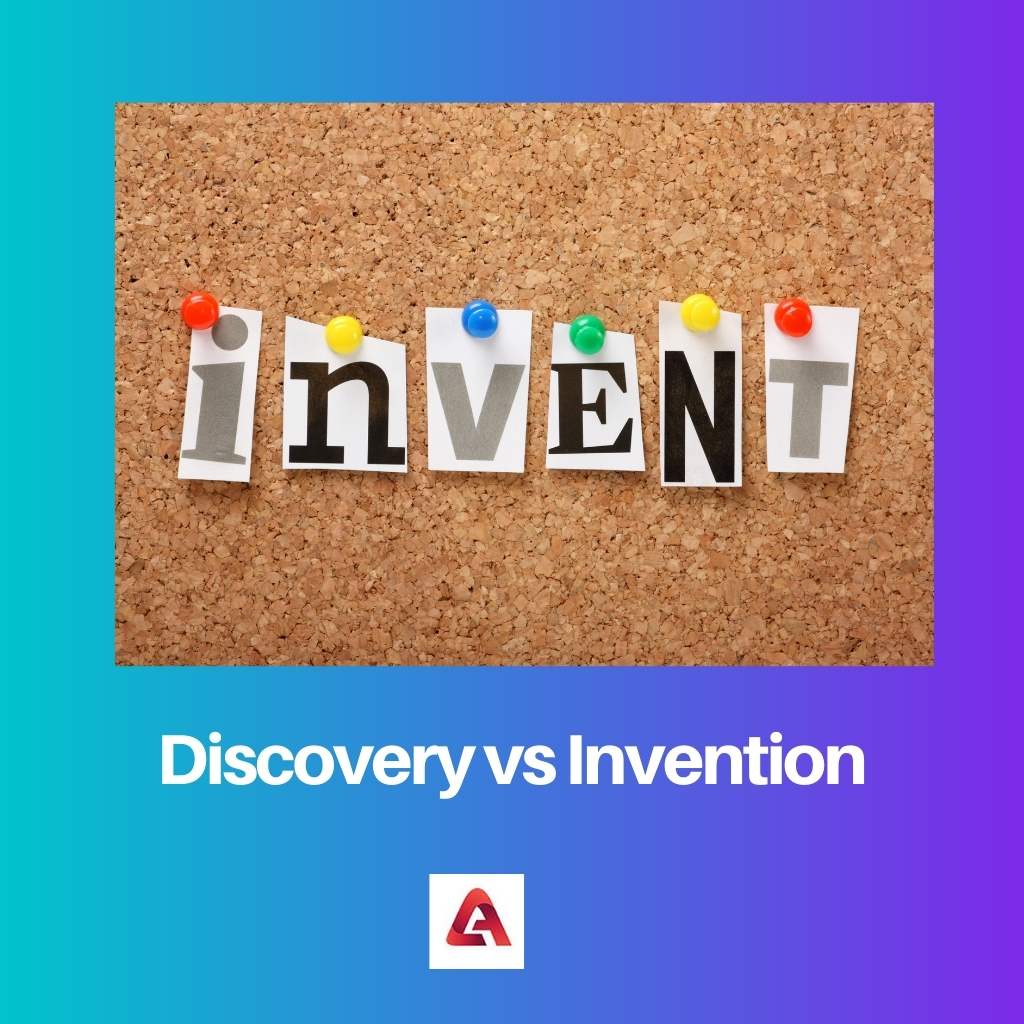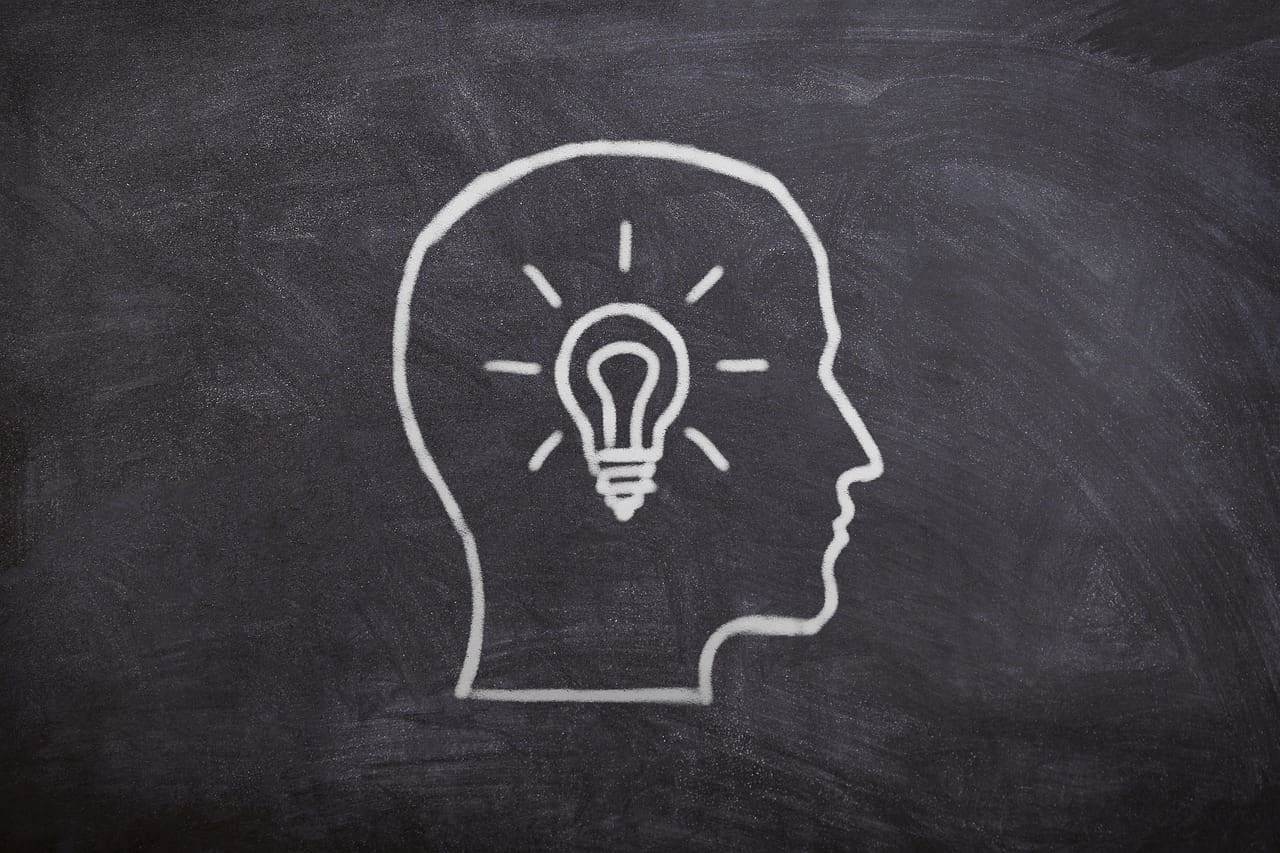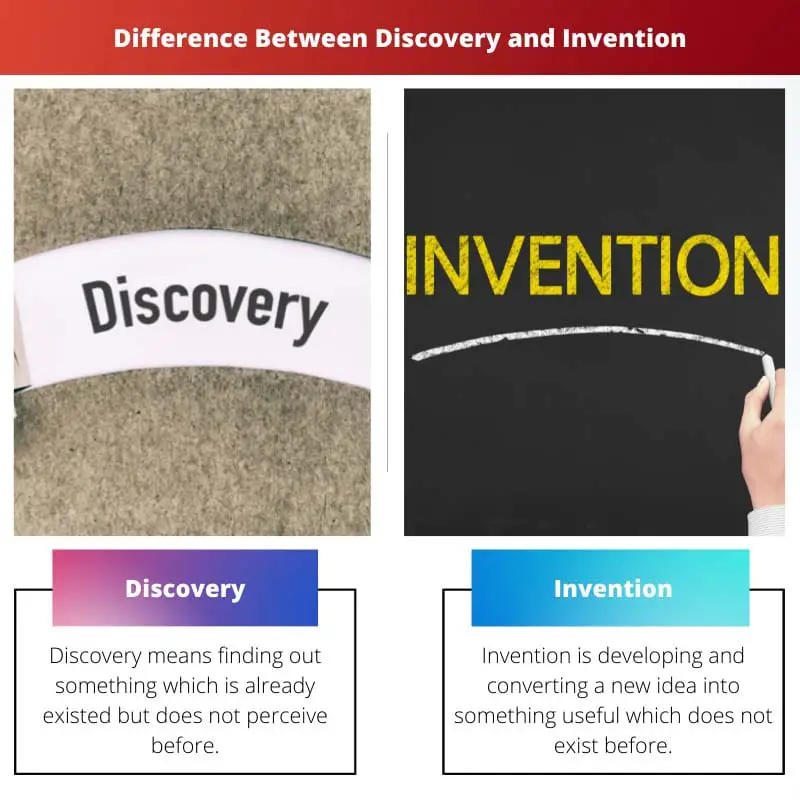In the modern world, where technology is changing rapidly, new things are either discovered or invented that impact the life of the individual in one way or another.
Discovery and invention may sound the same, but it is just a misconception. The discovery means when unexpected things are uncovered, while invention means making something new by using a unique idea.
Key Takeaways
- Discovery refers to finding something already existing, while invention involves creating something new.
- Discoveries occur in science and natural phenomena, while inventions are products of human creativity and ingenuity.
- Examples of discoveries include new species or natural laws, while inventions include new technologies or processes.
Discovery vs Invention
Discovery refers to recognising or identifying something that already exists in nature or the world. An invention is the creation or design of a new and original product, process, or idea involving the development of a new concept, product, or process that did not previously exist.

Discovery is finding out something for the first time which has not been used before. It is the process of determining or gaining knowledge of something which is already existed in the world but had not been seen earlier.
Discoveries cannot be patented because they are about making something known and do not mean or include producing something new.
The invention is converting an idea into a reality. It is about creating, developing, experimenting, implementing and transforming a new idea into something useful.
Various technical and scientific procedures are followed, and experiments are made to create a new item that serves a specific purpose.
Comparison Table
| Parameters of Comparison | Discovery | Invention |
|---|---|---|
| What is it? | Discovery means finding out something which is already existed but does not perceive before | Invention is developing and converting a new idea into something useful which does not exist before. |
| Involve | It involve exploration | It involves experimentation |
| Represents | Discoveries are the initial outcome of the natural occurrences | Inventions are technical procedures that include devices, artifacts, and processes |
| Existence | It is about recognizing or detecting pre-existed things | It is about creating and developing non-existed things |
| Patent | Discoveries cannot be patented | Inventions can be patented |
| Develop | Discoveries can be made accidentally or purposely | Inventions are done purposely to meet a specific purpose |
What is Discovery?
Discovery is detecting a new item or something which is already existed in the world but remains uncovered. In other words, it is about making a new thing known by exploring the natural occurrence.
Gravity and the plant cell are an example of discoveries. These things have already existed, but people do not know about the same. In discovering a new concept, curiosity plays a major effective role.
With curiosity, people would be able to research various concepts, and the repetitive questioning procedures will lead to making some things unexpected.

What is Invention?
The invention is producing or developing a unique item that has not existed in the world before. It is about transforming a new idea into something useful which is developed to meet a specific purpose.
The automobile, Railway, Airplane, and Wheel are a few examples of inventions in which people invent something that has never existed before and take the technology to some other level.
Inventions are done to serve a specific purpose or, for instance, facilitate the individual by fulfilling a particular need and requirement. It is made by effectively utilizing the distinct tool and turning them out into something amazing and useful.
Inventions result from planning involving a unique idea that can be patented.

Main Differences Between Discovery and Invention
- Discovery is finding out the pre-existed thing. It is about recognizing a new item or thing that already existed in the world but in an uncovered way. While creating and developing an idea into something useful that did not exist before is called invention.
- Discovery and invention may sound similar, but they are different from each other in one way or another. Discovery involves exploring and finding out something which is not acknowledged or not known to the people but exists in the world. On the contrary, the invention involves a predefined process of experimentation and using the distinct tool to create or produce something new and useful that never predict before.
- Discovery and invention will lead to some outcome that significantly impacts the world. Questioning and curiosity help recognise and uncover a new item and come out with natural occurrences. In contrast, inventions, on the other hand, involve various technical procedures that result in the outcome of conceiving new devices, artefacts, and processes.
- The existence plays a significant role in differentiating between these two terms. Discovery is uncovering or recognizing the pre-existing things that already exist, but nobody knows about their existence. On the contrary, inventions are producing and creating non-existed things. It is about transforming the ideas to create something productive and useful to meet a specific purpose,
- Recognizing a new thing or item by an individual or group of people that never heard of before will give the right of the patent to those individuals, but in discoveries, the person who discovers the thing has no patent right on the discovered thing or item because it is a natural occurrence. On the contrary, the inventors who make the inventions and come up with a unique idea to develop something useful have the right to get a patent for the invention, hence inventions are patentable.
- Discovery of an item or subject can be done accidentally, can be the result of curiosity, or can be done purposely by making and following procedures. On the contrary, inventions are always done purposely.

- https://www.ncbi.nlm.nih.gov/pmc/articles/PMC384082/
- https://onlinelibrary.wiley.com/doi/abs/10.1111/j.1478-4408.1965.tb02651.x

It’s quite ironic that discoveries cannot be patented. An interesting read.
Not everything has to be made into a patent. It’s an intriguing aspect of the article.
Indeed, it makes one wonder about the nature of intellectual property.
This article gives a clear distinction between discovery and invention. Well researched and informative.
Very detailed explanation. I learned a lot from this article.
Well-presented. The examples provided help in understanding the concepts better.
This article presents a rather dry comparison between discovery and invention.
I disagree. The article provides an insightful analysis of the subject.
The article is an excellent reference for understanding the fundamental disparities between discoveries and inventions.